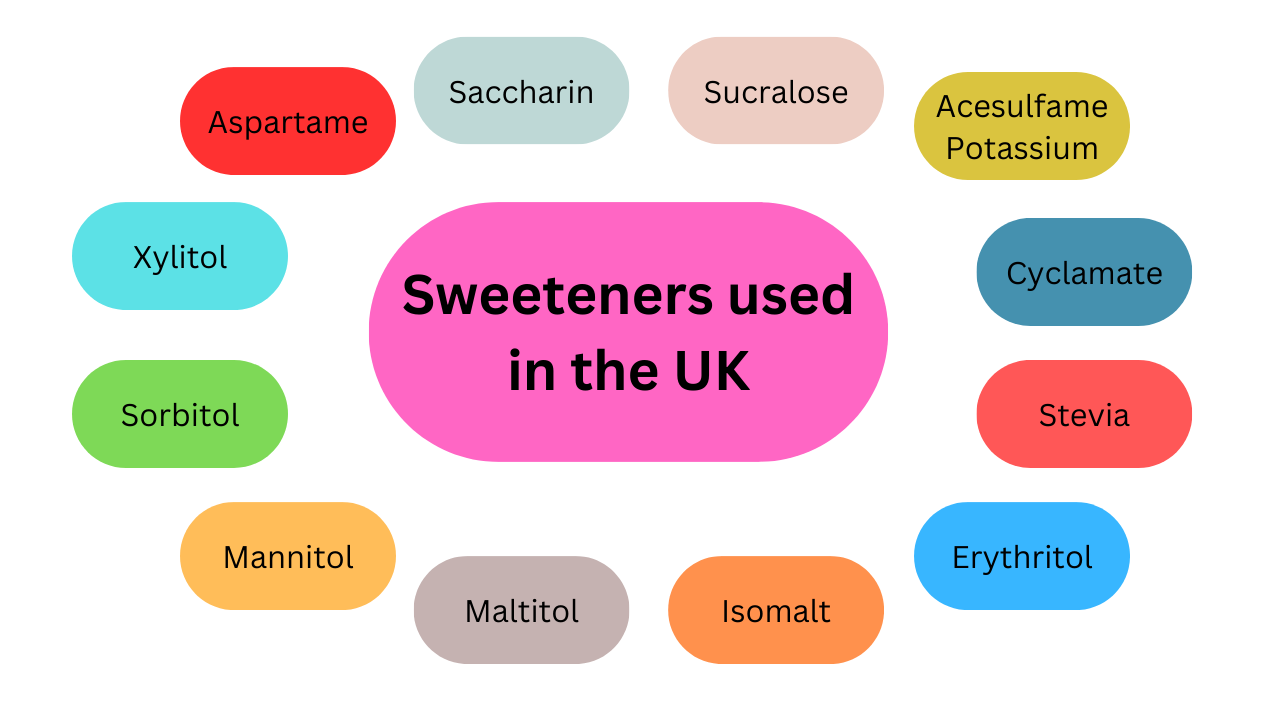
07 Oct How to Reverse Type 2 Diabetes: Are Artificial Sweeteners Helping or Harming?
Many people with type 2 diabetes turn to artificial sweeteners as a sugar-free option. After all, they don’t spike your blood sugar—or do they? In this article, we explore the latest research on artificial sweeteners and how they might affect your journey to reverse type 2 diabetes.
What Exactly Are Artificial Sweeteners?
Artificial sweeteners are chemical compounds used to make food taste sweet without adding calories. In the UK, common brands include Canderel, Splenda, and Sweetex. You’ll often find them in products labelled “diet,” “low sugar,” or “low carb.” Did you know that aspartame is around 180 times sweeter than regular sugar?
While originally designed to improve taste without calories, studies now suggest that regular consumption of these sweeteners may have unexpected consequences.

Can Artificial Sweeteners Actually Increase Your Risk of Type 2 Diabetes?
It seems counterintuitive, but research shows that some artificial sweeteners may disrupt how your body handles glucose and insulin. Over time, this could increase your risk of developing type 2 diabetes or make it harder to reverse if you already have it.
How Do Sweeteners Affect Your Weight and Metabolism?
Many people use sweeteners to lose weight, but studies suggest they may do the opposite. Artificial sweeteners can increase cravings for sweet foods, interfere with appetite signals, and even contribute to overeating. All of this can make it harder to manage blood sugar and achieve weight loss—both essential for reversing type 2 diabetes.
Do Artificial Sweeteners Harm Your Gut Health?
Emerging evidence suggests that artificial sweeteners like saccharin and sucralose can alter your gut microbiome. Since gut bacteria play a key role in metabolism and blood sugar control, this could impact your efforts to reverse type 2 diabetes.
Could Sweeteners Lead to Metabolic Syndrome?
Consuming sweeteners regularly has been linked to metabolic syndrome—a group of conditions including high blood pressure, high blood sugar, excess belly fat, and abnormal cholesterol levels. Metabolic syndrome can make type 2 diabetes harder to manage or reverse.
How Do Sweeteners Change Your Taste Preferences?
Eating artificially sweetened foods may make naturally sweet foods, like fruit, less appealing. Over time, this can reduce the quality of your diet and make it harder to follow a blood sugar-friendly eating plan, which is key to reversing type 2 diabetes.

Are There Psychological Effects of Sweeteners?
Sweeteners can affect your relationship with food. Some people rely on them to satisfy cravings, which can disconnect you from natural hunger and fullness signals. This can make managing blood sugar more complicated.
Should I Avoid All Artificial Sweeteners?
Not necessarily. Everyone reacts differently. Some people tolerate artificial sweeteners without issues, while others notice cravings, digestive changes, or blood sugar fluctuations. Cutting back or eliminating them may help improve blood sugar control and support weight management.
What Are Safer Alternatives to Artificial Sweeteners?
Natural options like stevia or monk fruit can be safer substitutes. Even better, gradually reducing sweetness in your diet and focusing on whole, low-glycemic foods can support your goal of reversing type 2 diabetes.
Where Can I Learn More About Reversing Type 2 Diabetes?
Dr Nerys Frater has created a three-part breakthrough video and a free blood sugar guide PDF to help you take practical steps toward blood sugar control and reversing type 2 diabetes.
References
Meng Y, Li S, Khan J, et al. Sugar- and Artificially Sweetened Beverages Consumption Linked to Type 2 Diabetes, Cardiovascular Diseases, and All-Cause Mortality: A Systematic Review and Dose-Response Meta-Analysis of Prospective Cohort Studies. Nutrients. 2021;13(8):2636. doi.org/10.3390/nu13082636
Bonnet F, Tavenard A, Esvan M, et al. Consumption of a Carbonated Beverage with High-Intensity Sweeteners Has No Effect on Insulin Sensitivity and Secretion in Nondiabetic Adults. J Nutr. 2018;148(8):1293-1299. nutrition-evidence.com
World Health Organization. WHO advises not to use non-sugar sweeteners for weight control in newly released guideline. WHO.int
